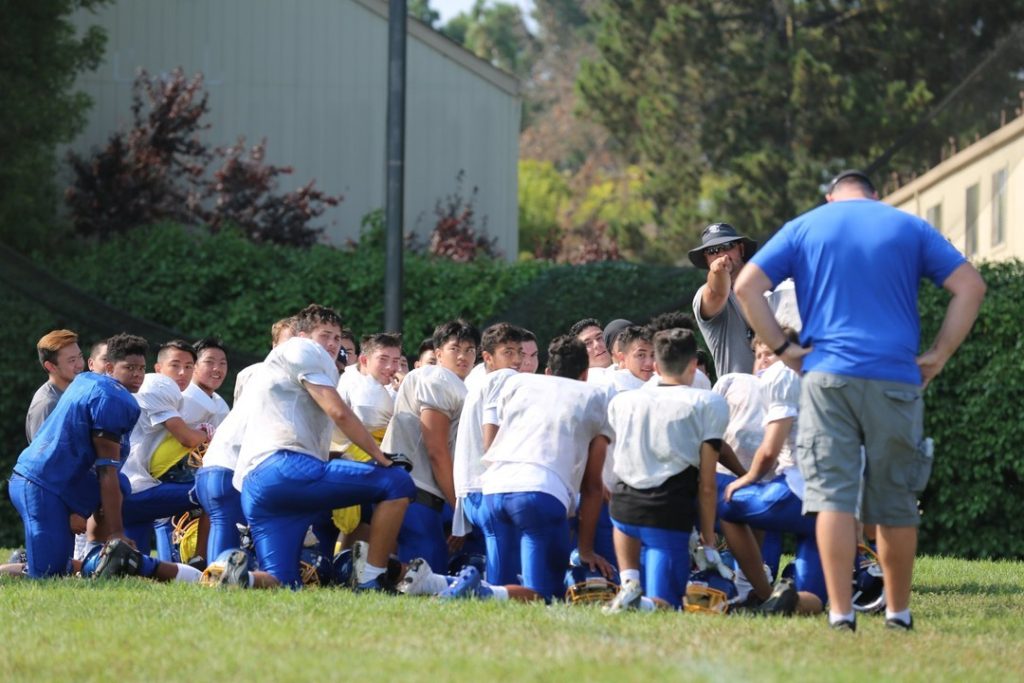
Football, with its dynamic mix of strategy, speed, and skill, has long been regarded as a sport that goes beyond just scoring goals. It is a game that builds character, fosters resilience, and enhances essential life skills—particularly teamwork and leadership. From school fields to professional stadiums, football teaches players how to work in harmony toward a common objective, make decisive actions under pressure, and support each other through wins and losses. For those inspired by live matches, watching live football on Xoilac TV not only provides thrilling action but also showcases these skills in action.
1. The Essence of Teamwork in Football
At its core, football is a team sport. Success hinges on players working together, understanding their roles, and trusting each other’s abilities. Unlike individual sports, where victories or defeats rest on one person’s shoulders, football requires a collaborative effort from all eleven players on the field. Each player has a specific role to play, whether it’s defending, attacking, or creating opportunities.
Teamwork in football teaches players the value of cooperation, as well as the importance of subordinating personal achievements to team goals. To create a cohesive unit, players must communicate effectively and understand each other’s strengths and weaknesses. For example, defenders rely on their teammates to cover gaps, while midfielders coordinate with forwards to convert plays into scoring opportunities. Through these interactions, players learn the art of collaboration, recognizing that success is a result of shared effort and mutual support.
2. Developing Trust and Mutual Respect
A successful football team is built on trust. Players need to trust that their teammates will cover for them, follow instructions, and contribute equally to the team’s objectives. This mutual trust fosters a sense of belonging and motivates players to perform their best, knowing that their teammates have their backs. Over time, this reliance on each other builds respect among players, which is crucial for creating a positive and supportive team environment.
Football also teaches respect beyond one’s own team. The game encourages players to respect opponents, referees, and fans, embodying the principle of fair play. Respect for teammates and others on the field teaches players the importance of valuing contributions, maintaining composure, and handling competition with grace. This respect cultivated on the field naturally transfers to everyday interactions, promoting a spirit of integrity and inclusivity.
3. Communication: The Backbone of Team Success
Communication is critical in football, as it allows players to coordinate and make quick, collective decisions. Whether it’s a simple call for the ball or a complex play signaled by hand gestures, communication keeps the team in sync. Football players learn to communicate clearly, concisely, and effectively, skills that are equally essential off the field.
Effective communication is not limited to verbal cues; it also involves non-verbal signals, such as body language and eye contact, that help players understand each other’s intentions. Through constant practice, players refine their ability to convey messages accurately and interpret others’ cues quickly. This skill, honed through football, becomes an asset in personal and professional settings where clear and effective communication is key to success.
4. Leadership Development on the Field
Football offers countless opportunities for players to develop leadership skills. On the field, players often need to make quick decisions that can affect the entire team. The role of a captain, for example, involves motivating teammates, making tactical adjustments, and sometimes even challenging the referee to ensure fair play. Captains exemplify leadership through responsibility and decision-making, inspiring others to stay focused and committed.
But leadership in football extends beyond the captain. Each player contributes to the team’s dynamic in unique ways—some lead by example, showcasing resilience and determination, while others inspire through encouragement and positivity. Football teaches players that leadership is not limited to a title; it is about influence, responsibility, and accountability. These leadership skills are invaluable, equipping players with the confidence to take initiative, manage challenges, and inspire others, both on and off the field.
5. Building Resilience and Mental Fortitude
Football, like any competitive sport, comes with its share of setbacks, losses, and disappointments. Players often face injuries, mistakes, and losses, all of which can be challenging both physically and mentally. The sport teaches resilience by encouraging players to learn from their failures, stay positive, and keep moving forward, no matter the odds.
Developing resilience is essential for both teamwork and leadership, as players who are mentally strong can lift the spirits of their teammates during tough times. Resilient players also inspire others by demonstrating determination and dedication, creating a team culture that values perseverance. Football’s emphasis on resilience prepares players for life’s challenges, instilling a mindset of persistence and optimism that can be applied in personal and professional pursuits.
6. Problem-Solving and Decision-Making Under Pressure
Football is a fast-paced sport that requires players to make quick decisions under pressure. Whether it’s a midfielder deciding where to pass, a defender choosing to tackle or hold back, or a striker deciding how to finish a play, each decision can impact the game’s outcome. Football players learn to process information quickly, weigh their options, and make choices that benefit the team.
This skill of quick problem-solving is critical in real-life situations, especially when facing stressful conditions. Football’s inherent demand for strategic thinking under time constraints enhances players’ ability to remain composed, think logically, and make effective decisions. This is not only a crucial trait for leaders but also an invaluable asset for anyone aiming to succeed in today’s fast-paced world.
7. Conflict Resolution and Emotional Control
Football, like any competitive activity, can lead to intense emotions, particularly during close games or critical moments. Players often face high-pressure situations that test their ability to manage emotions and resolve conflicts respectfully. Through regular exposure to such scenarios, football teaches players the importance of emotional control.
In addition to managing their own emotions, players learn to resolve conflicts effectively. Disagreements between teammates, competitive tension with opponents, and issues with officiating are common. Football players learn how to de-escalate conflicts, practice empathy, and prioritize team harmony over personal grievances. These skills are critical in any team setting, fostering a constructive atmosphere where respect and collaboration thrive.
8. The Role of Coaches in Shaping Teamwork and Leadership
Coaches play an instrumental role in fostering teamwork and leadership among players. A good coach guides players on how to collaborate effectively, communicate with confidence, and handle the pressures of the game. Through their mentorship, coaches instill values of respect, perseverance, and integrity that shape players’ attitudes toward teamwork and leadership.
Coaches also encourage players to take on leadership roles, delegating responsibilities and empowering individuals to lead by example. This experience allows players to grow into effective leaders, developing their sense of responsibility and decision-making abilities. Coaches are essential in helping players understand that leadership and teamwork go hand in hand, as true leaders support their teammates, set positive examples, and encourage a unified team effort.
9. Translating Football Skills into Everyday Life
The skills acquired on the football field have significant value beyond the game. Teamwork, leadership, resilience, communication, and problem-solving are all essential traits that contribute to success in both personal and professional domains. Employers, for instance, often value employees who can work well within teams, communicate effectively, and adapt to dynamic situations—all of which are skills honed on the football field.
For young players, football provides a foundation of life skills that help them navigate future challenges. The lessons learned through teamwork and leadership on the pitch foster a sense of responsibility, adaptability, and confidence that are essential in adulthood. Football encourages a growth mindset, reminding players that continuous improvement, discipline, and collaboration are key to achieving one’s goals.
Conclusion
Football is more than a sport; it is a powerful tool for personal growth and development. Through teamwork and leadership, football instills values and skills that shape players’ character, enhance their social interactions, and equip them for life’s challenges. By fostering trust, communication, resilience, and respect, football builds individuals who are capable of leading and contributing to any team. For fans, watching live football on Xôi lạc TV not only provides thrilling moments but also offers a glimpse into the teamwork and leadership that make football the beautiful game.



